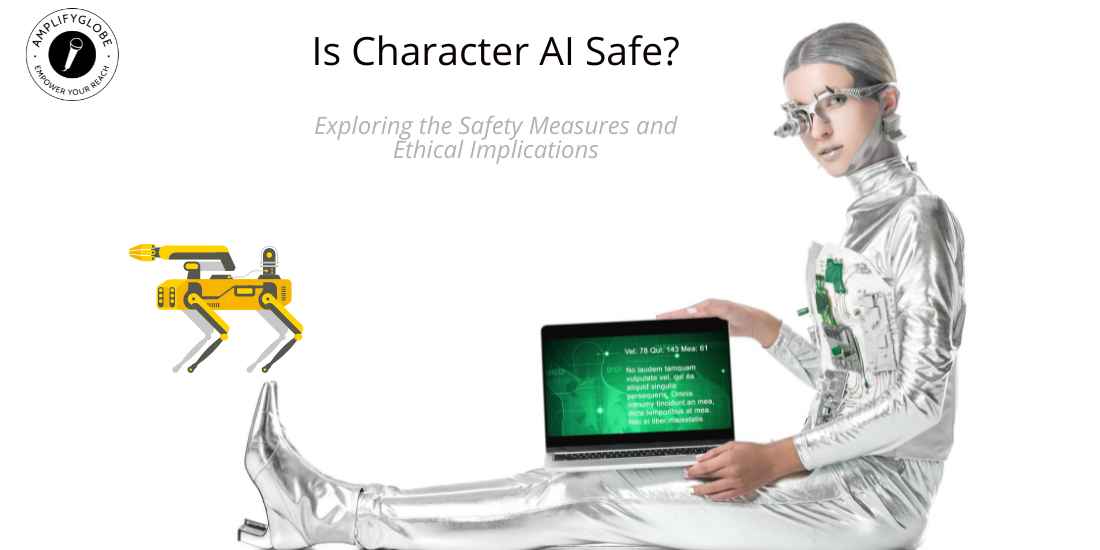Character AI, also known as conversational agents or chatbots, has become increasingly prevalent in various aspects of our lives, from customer service to personal assistants. However, as these AI systems become more sophisticated, concerns about their safety and ethical implications have also grown. In this blog, we will delve into the question: Is character AI safe? We will explore the safety measures implemented in character AI, as well as the ethical considerations surrounding its use.
Understanding Character AI
Character AI refers to artificial intelligence systems designed to engage in human-like conversations. These systems use natural language processing (NLP) algorithms to understand and respond to user input, simulating human-like dialogue. Popular examples include virtual assistants like Siri, Alexa, and chatbots deployed by businesses for customer support.
Is Character AI Safe? – Safety Measures in Character AI
1. Data Privacy and Security: One of the primary concerns character AI is the protection of user data. To ensure privacy, AI developers implement robust encryption protocols and adhere to strict data handling regulations such as GDPR and CCPA.
2. User Authentication: Character AI systems often incorporate user authentication mechanisms to verify the identity of users before providing sensitive information or performing certain actions. This helps prevent unauthorized access to personal data.
3. Content Moderation: To maintain a safe environment, character AI platforms employ content moderation techniques to filter out inappropriate or harmful content. This includes detecting and blocking hate speech, harassment, and other forms of harmful communication.
4. Transparency and Accountability: Responsible AI developers strive for transparency and accountability by openly disclosing the capabilities and limitations of their character AI systems. This helps users understand what to expect and how to interact safely the AI.
Is Character AI Safe?Ethical Considerations
1. Bias and Fairness: Character AI systems may inadvertently perpetuate biases present in the training data, leading to unfair treatment or discrimination against certain groups. To address this, developers must carefully curate training data and implement bias mitigation techniques.
2. Manipulation and Influence: There is a concern that character AI could be used to manipulate or influence users, particularly in areas such as marketing and politics. Safeguards must be in place to prevent malicious exploitation of AI for manipulative purposes.
3. Psychological Impact: Interacting character AI can have psychological implications, especially for vulnerable populations such as children and individuals mental health issues. Ethical considerations include designing AI interactions in ways that promote positive mental well-being and minimize harm.
4. Consent and Autonomy: Users should have control over their interactions character AI, including the ability to opt-out or limit the collection of personal data. Respecting user consent and autonomy is essential in ensuring ethical AI deployment.
Conclusion
In conclusion, while character AI offers numerous benefits, including improved efficiency and accessibility, ensuring its safety and ethical use is paramount. By implementing robust safety measures such as data privacy protection, user authentication, and content moderation, developers can mitigate potential risks associated AI interactions. Moreover, addressing ethical considerations such as bias, manipulation, and consent is crucial for fostering trust and responsible AI deployment. Ultimately, by prioritizing safety and ethics, we can harness the full potential of character AI while safeguarding the well-being of users.
More on AmplifyGlobe
Discover the secrets behind the rich cultures of the Aymaraes, the Nuckelavee, and the Gancanagh. Explore the Kazakh, the Sami People, the Ainu of Japan, the Adivasi, the Akha People, and more on AmplifyGlobe.
